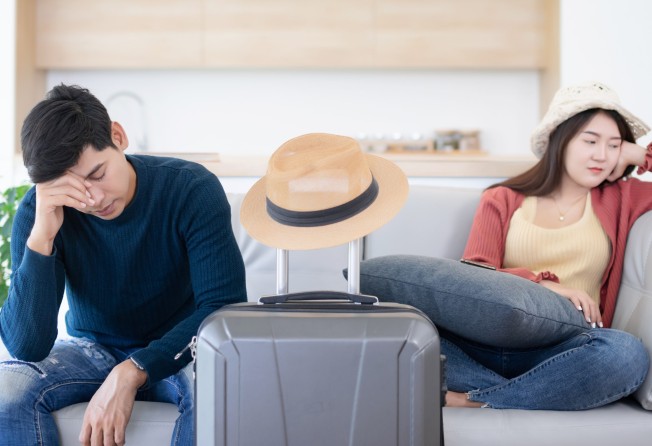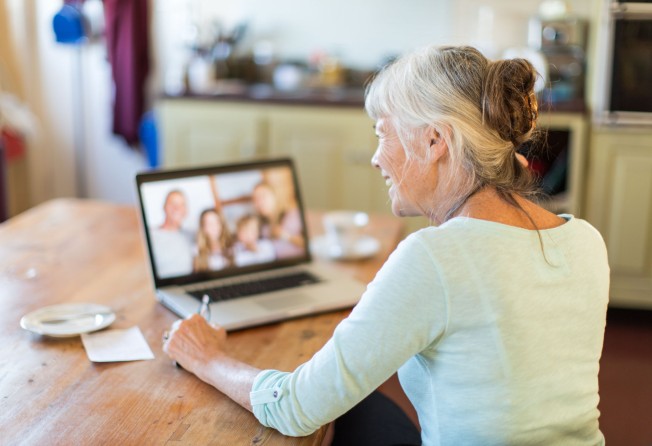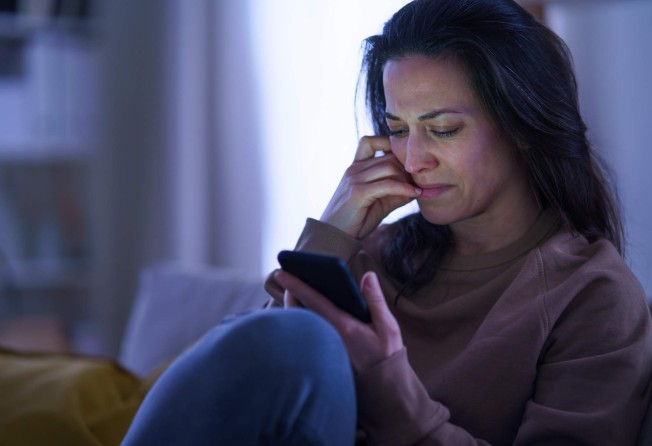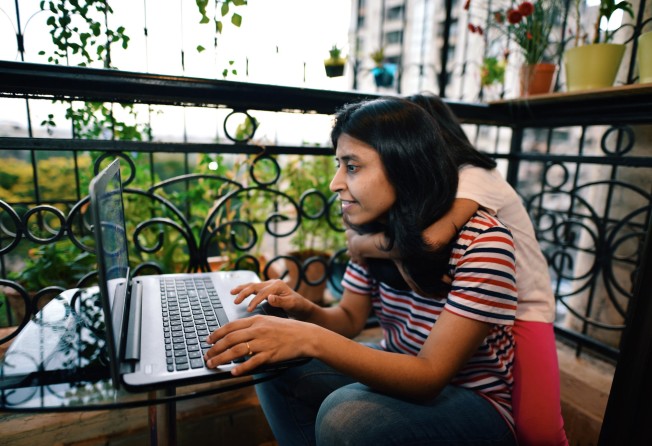
How coronavirus travel restrictions impact your mental health, and an expert’s five tips for how to safeguard it
- Families in Hong Kong and elsewhere are struggling with uncertainty about when they can travel overseas to see loved ones or have a vacation as rules change
- A psychologist who is seeing rising cases of stress and burnout and symptoms of depression has some advice about staying in touch with loved ones, and self-care

Cat Rüst and her husband, Stefan, spend hours every day in Hong Kong monitoring websites for the latest updates on travel restrictions. With three of their four children overseas at boarding school and university, managing the kids’ travel over the summer is proving a fraught logistical challenge.
“It’s incredibly stressful, every day you’ve got to solve a new problem. What’s today’s battle plan? You wake up and something has changed, or this vaccine won’t work in this country,” says Cat Rüst, a working mother.
In March the family was caught up in the Ursus Covid-19 cluster linked to a Hong Kong gym and sent to different hospitals. The couple’s 16-year-old daughter, the youngest of their children, didn’t test positive and was sent to Penny’s Bay Quarantine Centre on Lantau Island by herself.
She is now in Britain and, even before flights from the country were banned, was reluctant to return and undergo three weeks in quarantine – so the Rüsts have been doing their best to ensure she isn’t left stranded.


“These are rules which, while totally logical from the government’s perspective, are very distressing from a family perspective. The bit that’s most stressful is you feel you don’t control your family,” says Cat Rüst, whose job in fintech has her firmly tied to Hong Kong at the moment.
It is the constantly shifting sands of the pandemic – is one vaccination enough for travel to Canada? Do you need an antibody test? Do you need to quarantine and for how long? – that are making people more stressed and anxious.
“We are hard-wired to hate uncertainty. We learn from experience, and not knowing what to do next or what to predict creates anxiety. We want to know what is going on [in order] to plan,” says clinical psychologist Sharmeen Shroff.
As we enter the second summer of the pandemic, Shroff is seeing a lot of clients with signs of stress and burnout, and says she’s noticing more symptoms of depression emerging. The banning of flights from Britain to Hong Kong left those already in the country scrambling to secure a return route via a third country, or forced to cancel plans to see loved ones.
“There is a lot of concern around ageing family members and a significant fear among the clients I see and the people I know that we might not be able to see family again, especially in countries where Covid-19 is particularly bad right now,” says Shroff.


Long-time Hong Kong resident Jo Jones hasn’t seen her elderly mother in Wales in the UK since 2017. Earlier plans to visit her were scuppered by Covid-19 and, while she is grateful to British Airways for extending her ticket each time, she has become very anxious keeping on top of the travel restrictions and requirements.
“You don’t just need the antibody test, you need to get an accreditation certificate from the test provider. The quarantine Facebook page scared the life out of me – there are 18-year-olds at the airport without the right documentation,” says Jones.
Her flight was set for July 18 and then the flight ban threw all her plans into chaos.
“I work for an NGO and don’t get paid much, so the cost of flying to another country like Dubai or Greece isn’t possible. I’m devastated and angry and upset,” says Jones, who works with City Mental Health Alliance.
Anxiety around travel this summer runs both ways – there are those who are stressed about having to cancel trips to see elderly relatives and those who are already overseas and now trying to negotiate an alternative route back.
Tim Hoffman, a psychotherapist, says only in the last 40 or 50 years has international travel become cheap and easily available, and that expats before that regularly went two years before going home.
“I don’t think anyone looks back on that time and says, ‘Those poor people, separated from loved ones for so long, they must have had terrible mental health issues’,” says Hoffman.

But Shroff says the challenge comes because times have changed, and we have become used to seeing family overseas regularly.
“In Hong Kong, so many expats move here because of the ease of travel, you could just jump on a plane and be there the next day, and for that to be suddenly taken away is hard,” she says.
Shroff can understand the almost impossible challenge for the government of keeping everyone happy while keeping the number of Covid-19 cases down and getting back to normal life, but she hopes that the government will take mental health into consideration when making decisions.


Shroff’s five top tips to safeguard mental health
1. Allow yourself to feel whatever you are feeling. Talk to friends and family or a mental health professional and share your worries or sense of loss, as it’s likely you’re not the only one feeling this way. “If you can name it, you can manage it. It may seem better to try to block it out, but ignoring worries will only increase anxiety levels,” says Shroff.
2. Stay connected to others, as social support can have a positive impact. “If you are far from family, connect with them on FaceTime and keep the connection going,” she says.
3. Take a break – you might have been forced to cancel a planned trip away, but that doesn’t mean you have to abandon the idea of having a holiday. “A couple of days doesn’t help, it’s like a weekend. Schedule a week off and take that time off and disconnect from devices as you would on holiday. Those breaks are essential with burnout and stress,” says Shroff.
4. Engage in self-care. It might be tempting to abandon healthy routines, but whether you are stuck overseas or in Hong Kong for the summer, make an effort to do the things that will make you feel good, eat well and exercise. “Self-care doesn’t have to be physical activities that relax you; you might find fun in journaling, mindfulness or having a long bath. Do things that remind you of that sense of joy in you,” she says.
5. Focus on the things you can control and take it day by day. “I don’t know anyone who isn’t struggling right now. Celebrate the small wins – ‘maybe I didn’t make it to the gym three times, but I made it once’. Be compassionate to yourself,” she says.